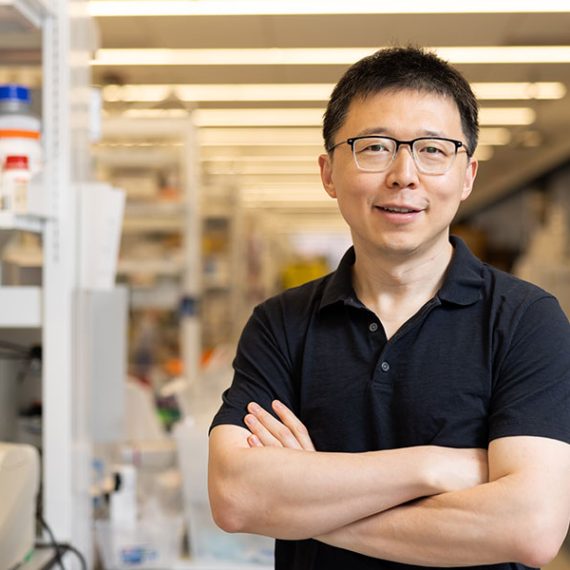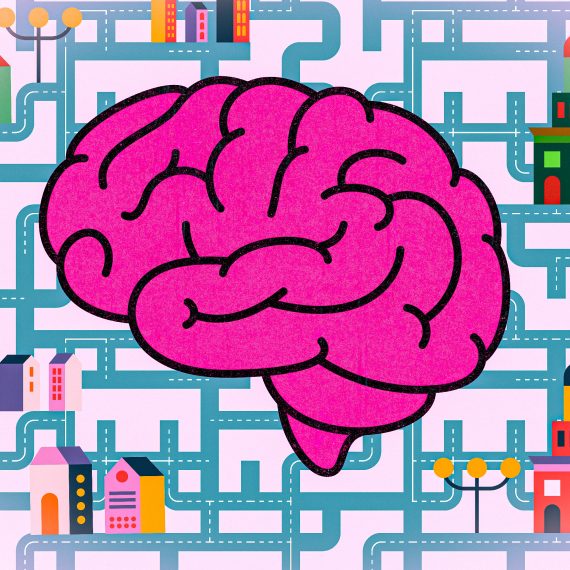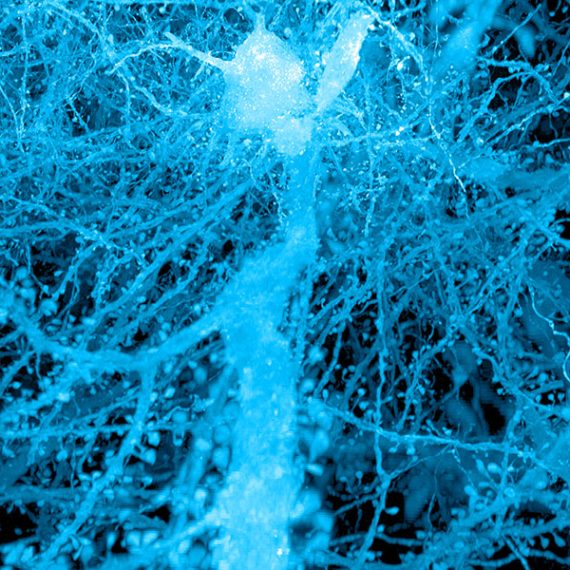Mark Harnett’s “Holy Grail” experiment
Neurons in human and rat brains carry electrical signals in different ways, Harnett explains in this video.
To view this video please enable JavaScript, and consider upgrading to a web browser that supports HTML5 video
Neurons in the human brain receive electrical signals from thousands of other cells, and long neural extensions called dendrites play a critical role in incorporating all of that information so the cells can respond appropriately.
Using hard-to-obtain samples of human brain tissue, McGovern neuroscientist Mark Harnett has now discovered that human dendrites have different electrical properties from those of other species. Their studies reveal that electrical signals weaken more as they flow along human dendrites, resulting in a higher degree of electrical compartmentalization, meaning that small sections of dendrites can behave independently from the rest of the neuron.
These differences may contribute to the enhanced computing power of the human brain, the researchers say.




